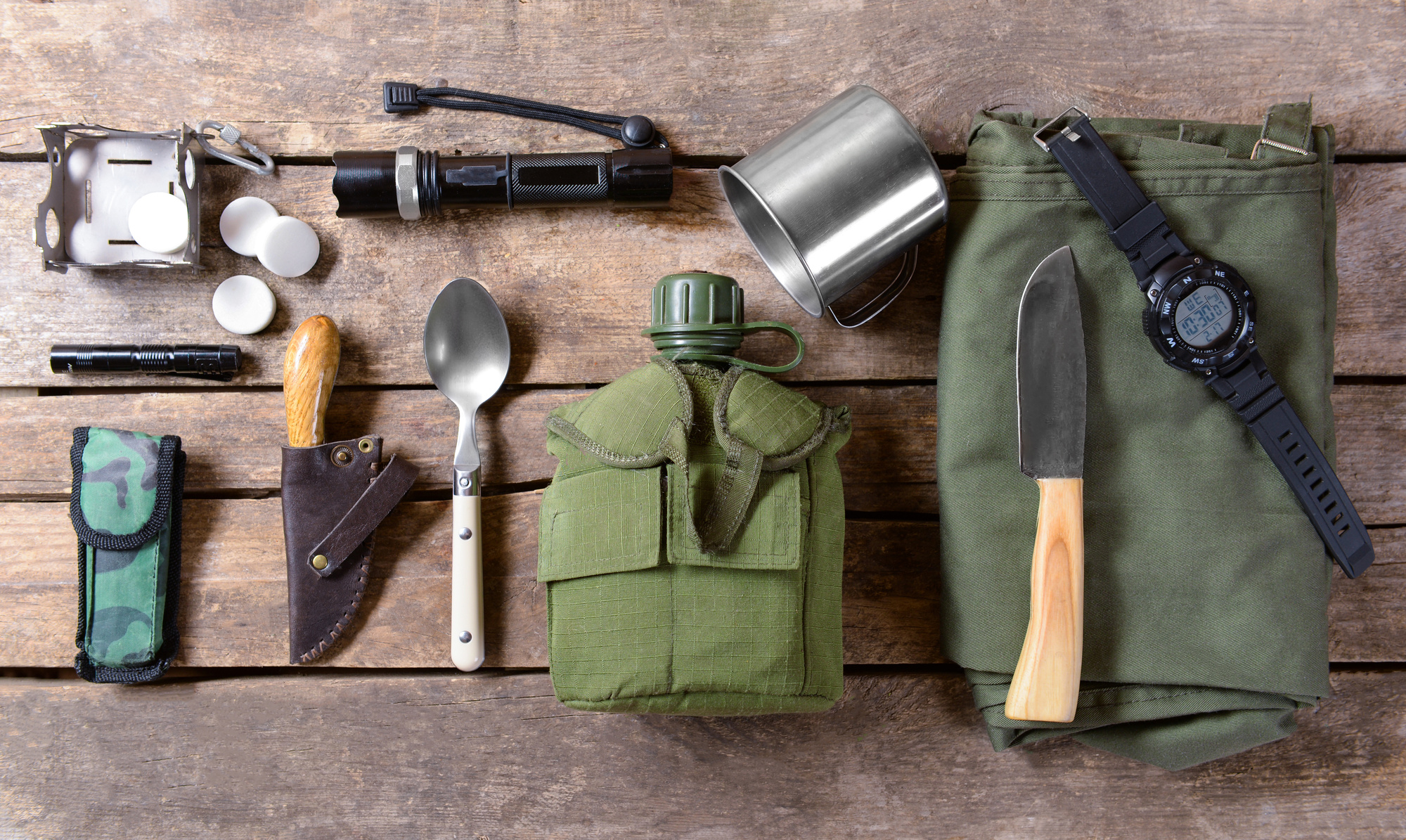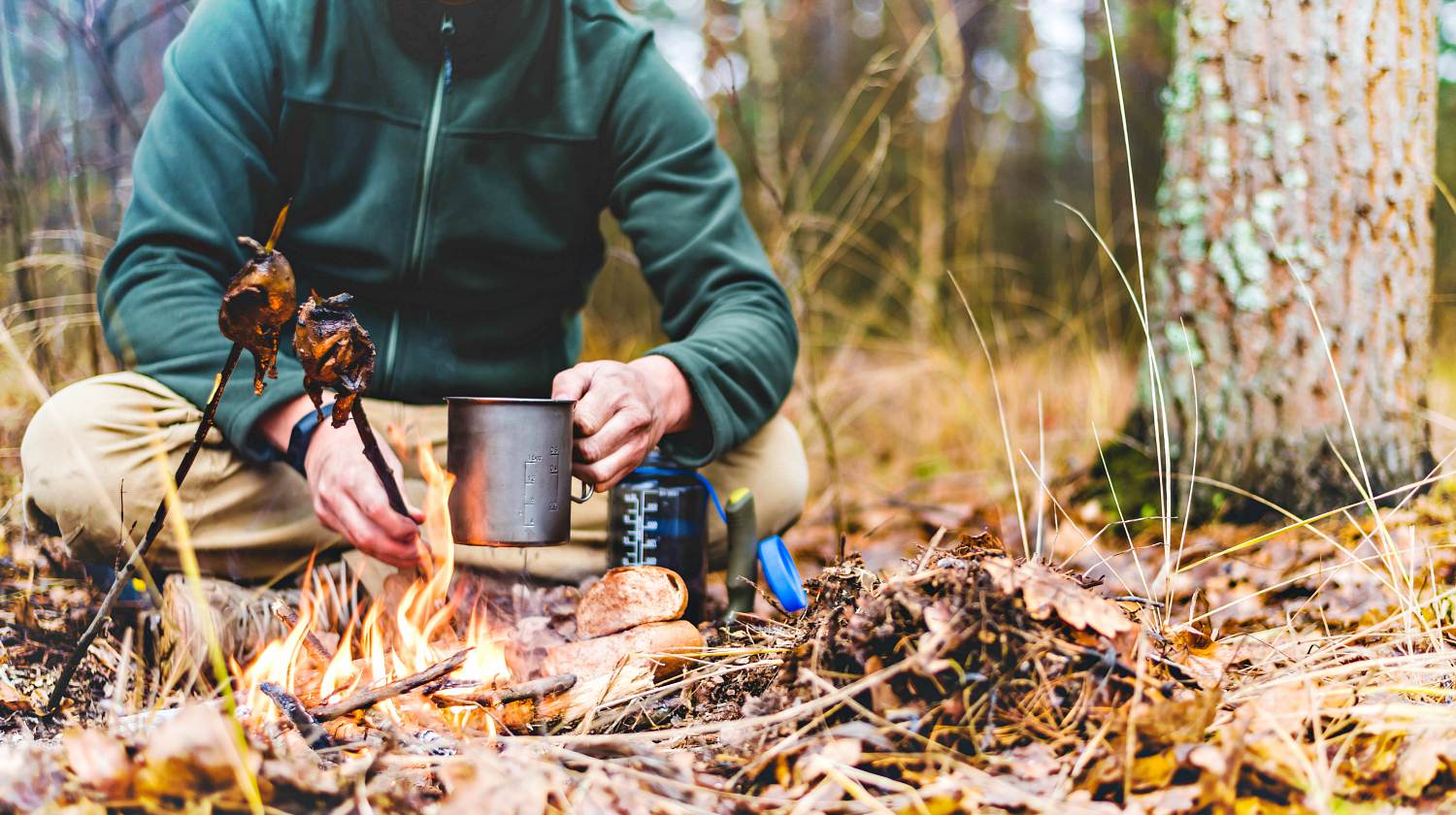Survival skills are essential for navigating unexpected, life-threatening situations in various environments. To survive, individuals must possess knowledge, skills, and mental fortitude to overcome challenges and adapt to adverse conditions. Here’s a comprehensive guide on survival:

Preparation and Mindset:

- Develop a survival mindset that prioritizes resilience, adaptability, and problem-solving.
- Regularly update your knowledge about survival techniques, first aid, and environmental hazards.
- Create an emergency kit containing essential items like a map, compass, flashlight, fire starter, food, water purification tablets, and basic medical supplies.
Finding Shelter:

- Seek shelter to protect yourself from the elements, predators, and hazards.
- Construct a rudimentary shelter using natural materials like branches, leaves, and rocks.
- Choose sheltered areas, such as caves, rock overhangs, or dense vegetation, to minimize exposure to sun, wind, and rain.
Gathering Food and Water:
- Identify edible plants, berries, roots, and fruits by learning about local flora.
- Look for natural water sources like streams, lakes, or rainwater collection.
- Purify water using boiling, filtration, or chemical treatment methods.
- Supplement your diet with insects, grubs, and other small creatures, if necessary.
Fire-Making and Cooking:
- Learn to start a fire using flint and steel, a fire starter, or friction methods.
- Build a controlled fire for warmth, cooking, and signaling for help.
- Cook food thoroughly to prevent illness and maximize nutrient absorption.
Navigating the Environment:
- Learn basic map and compass navigation skills to avoid getting lost.
- Observe the sun’s position and natural landmarks to determine direction.
- Stay aware of your surroundings, and create mental notes of landmarks and potential hazards.
Signal for Help:
- Use bright-colored clothing or materials to create a signal that can be spotted from a distance.
- Practice basic signaling techniques, such as using a mirror to reflect sunlight or blowing a whistle.
- If near water, create an SOS symbol on the ground using rocks or debris.
First Aid and Medical Care:
- Learn basic first aid skills, including wound care, CPR, and treating common injuries.
- Carry a basic first aid kit containing bandages, antiseptic wipes, pain relievers, and other essential supplies.
- If injured, prioritize treating life-threatening conditions and preventing infection.
Staying Positive and Conserving Energy:
Legal and Ethical Considerations:
- Respect local laws and regulations, especially regarding hunting, fishing, and gathering resources.
- Avoid harming endangered species or damaging the environment.
- If found by rescuers, cooperate fully and follow their instructions.
Survival situations are unpredictable, and challenges vary depending on the environment and circumstances. Always prioritize safety, adapt to your surroundings, and maintain a strong will to survive.










